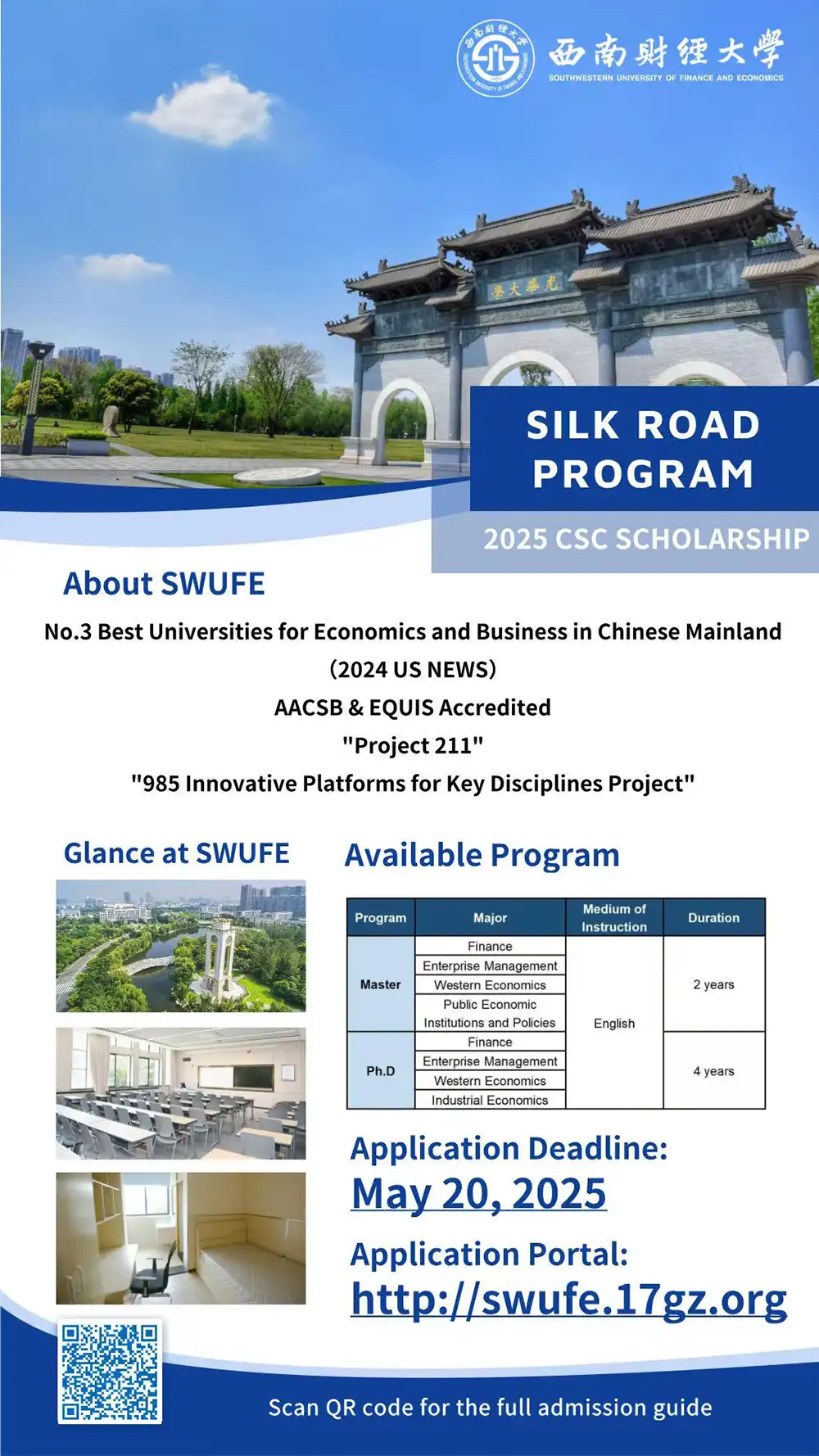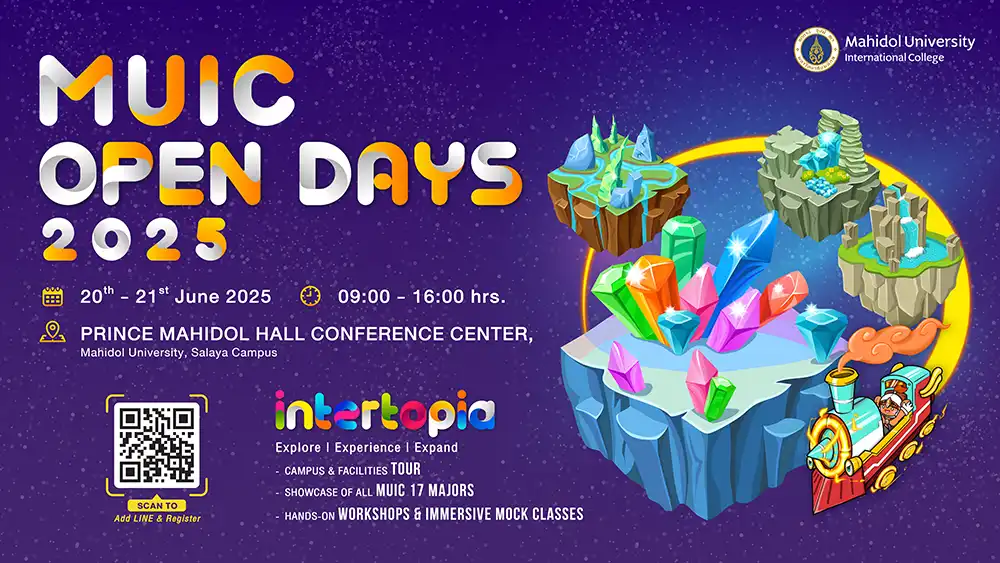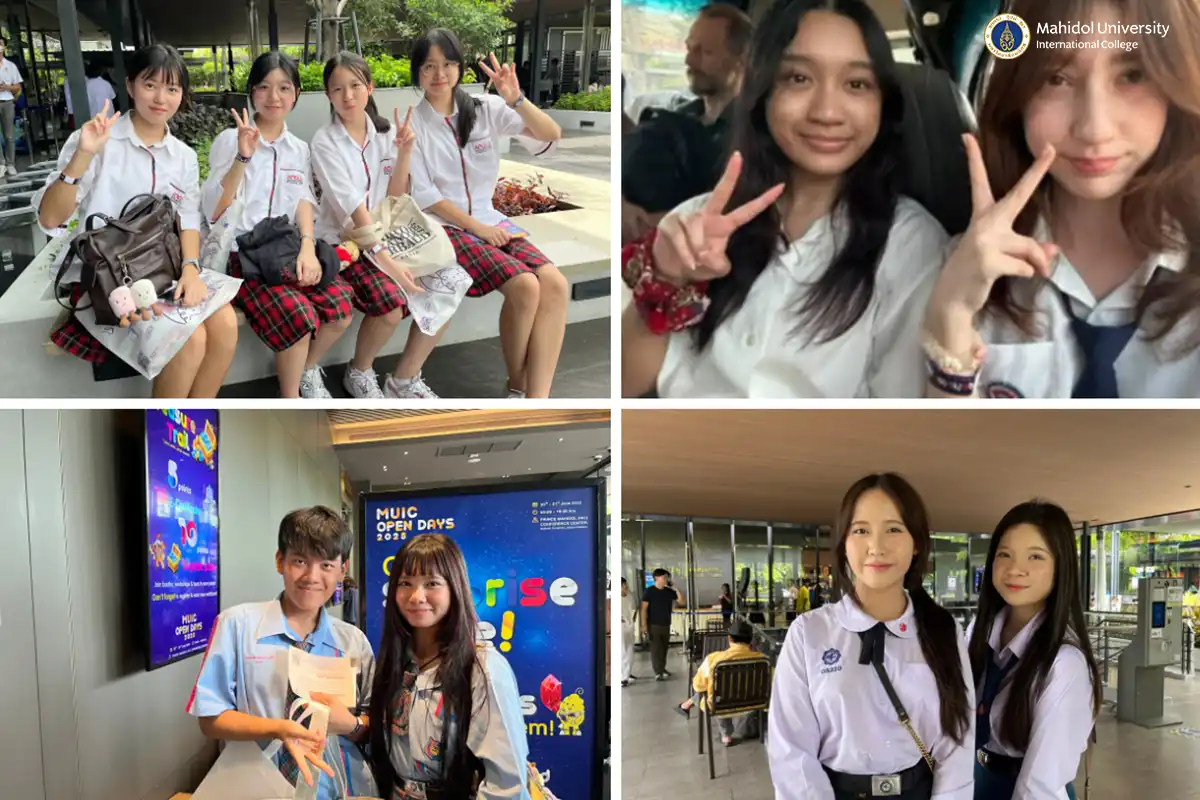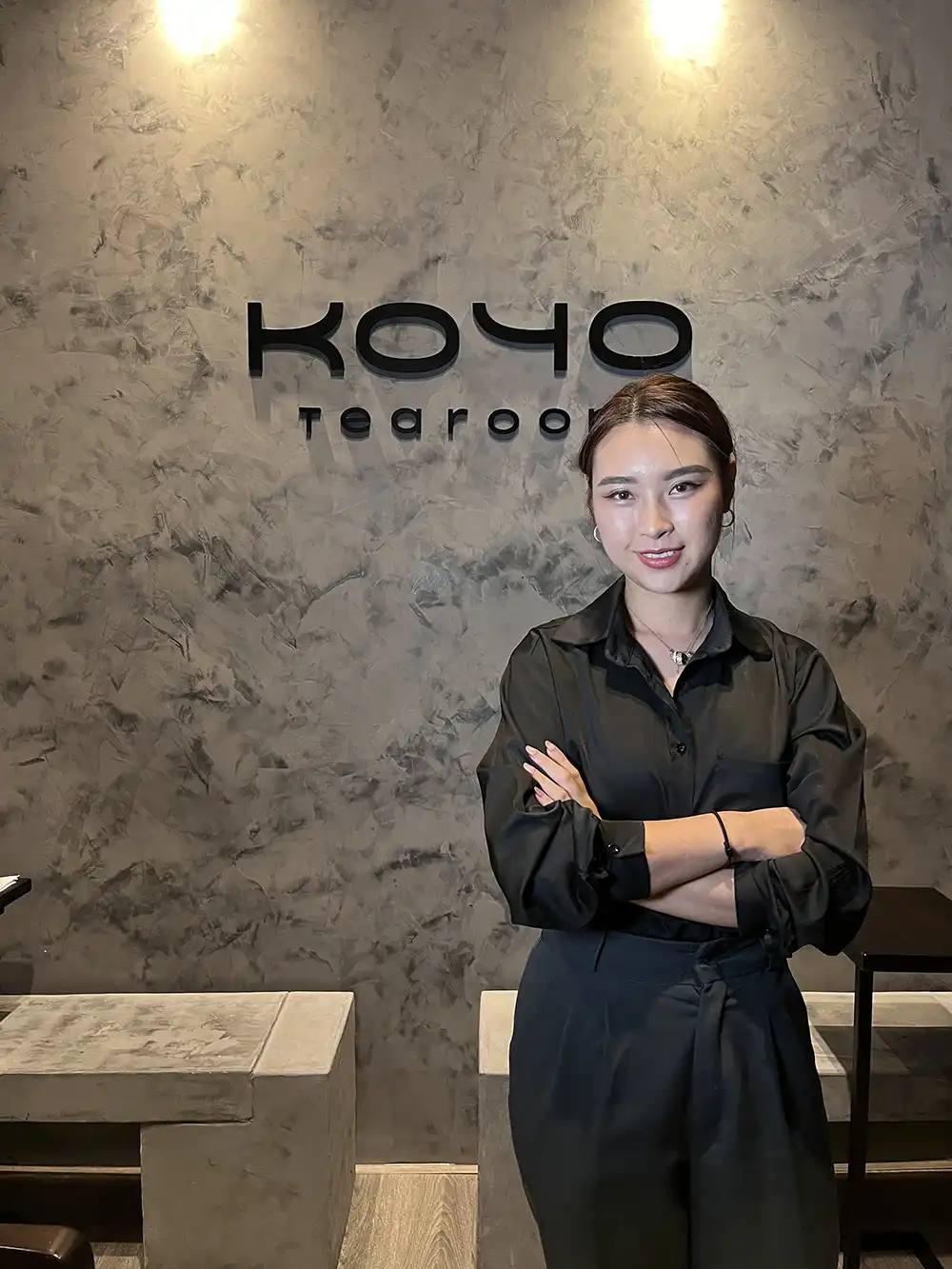Please choose a news and article category.
Recent MUIC Events
Withdrawal Period for Trimester 3/2024-2025
Gender Festival 2025
Explore the World of MUIC!
MUIC 360 Degrees
Understanding Generation Z: A Deep Dive into University Students in Thailand
September 26, 2023 2023-09-26 3:27Understanding Generation Z: A Deep Dive into University Students in Thailand
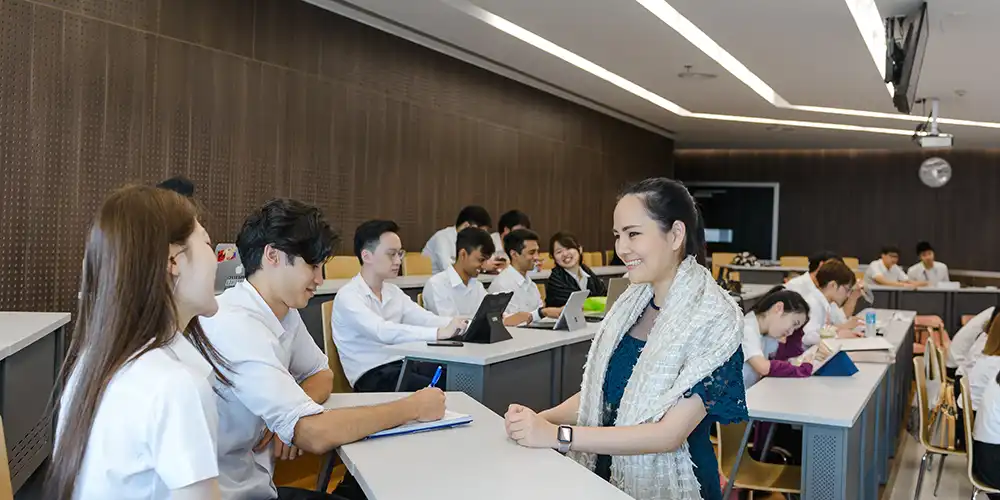
Understanding Generation Z: A Deep Dive into University Students in Thailand
By Asst. Prof. Dr. Malinvisa Sakdiyakorn
Generation Z (Gen Z) is undeniably shaping the future of the workplace. Our research dives deep into the experiences, values, and behaviors of 125 Gen Z students in Thailand to unravel their collective consciousness – the shared beliefs and experiences that guide their worldviews.
Key Insights from the Research:
Formative Experiences
Gen Z’s perspective has been molded by significant global and local events during their formative years, as well as personal experiences linked to their upbringing and education. Additionally, the influence of social factors like family, teachers, and public figures plays a vital role in shaping their beliefs and actions. It is worth noting that technology and social media continue to be central in their lives, reshaping their perceptions of connection and relationships.
Major Events Shaping Gen Z
- Generation Z (Gen Z) grew up in a time of rapid change and constant upheaval. They’ve witnessed a series of significant events, both at home and around the world, that have left a lasting impact on how they see the world.
- Political events, natural disasters, environmental crises, social movements, and wars have fueled frustration and a lack of trust in government authorities. They’ve also seen inequality and wrongdoing, which has led to a strong desire for justice, harmony, and respect. Gen Z is motivated to take a leap of faith and work towards creating a better society.
- The death of King Rama IV and sports competitions have taught Gen Z about sacrifice, helping others, sportsmanship, and comradeship.
- The technological revolution has made Gen Z more open-minded and globally aware. It has also highlighted the importance of social connections and relationships in their lives.
Personal Events Shaping Gen Z:
- Changing schools or studying abroad proved transformative for many, teaching them resilience and adaptability.
- Family relationships, particularly the bond between Gen Z and their parents, are stronger than in previous generations. This bond influences their values and priorities.
- Experiences like bullying, both physical and cyber, have had profound impacts on their psyche, fostering resilience, independence, and empathy.
Social and Technological Influences on Gen Z
- Gen Z’s values and perspectives are influenced by a variety of social figures, from family and teachers to celebrities like singers and businessmen. Interestingly, while family, especially parents, continue to play a pivotal role as role models, political leaders do not resonate with Gen Z as much due to perceived issues of contention and scandals. Instead, figures from the entertainment and business sectors inspire them more.
- Technologically, the omnipresence of news, social media, and the Internet has been pivotal in shaping Gen Z’s worldview. This constant influx of information has made them open-minded and empathetic, but it’s also fostered skepticism. Many question the credibility of media and emphasize the importance of critical thinking.
Gen Z’s Ethical Blueprint: What values do they uphold?
Human Values: Gen Z’s formative experiences are believed to shape their lifelong values. Gen Z places a premium on values like Universalism and Benevolence, indicative of a focus on self-transcendence and the well-being of others. There’s also a marked inclination towards Self-Direction, Achievement, and Security.
Universalism
Gen Z cares deeply for the well-being of every living being. A series of world events has amplified their call for unity, respect, and fairness. Parents play a big role in instilling these values. Media has a dual role here; while it exposes Gen Z to world injustices, it also pushes them towards skepticism due to the prevalence of “fake news.” Regardless, many Gen Z members are determined to make a positive mark in the world. As one participant said, “I’d be happy knowing my work helps society.”
Benevolence
Defying concerns about tech reducing face-to-face interactions, Gen Z craves genuine personal connections. Their value for honesty, love, and loyalty in relationships stems from family bonds and experiences with friends. One participant shared, “Good people are treasures. I find joy in being around those who support me in life’s journey.”
Self-direction
Gen Z balances their desire for close connections with a love for freedom. Whether inspired by understanding parents or personal struggles, many have learned to be independent and self-reliant. Popular figures, like the boyband BTS, inspire some, as one participant revealed how BTS helped her learn self-love.
Achievement and Security
Driven by a world of chaos and mistrust, Gen Z values determination and self-improvement. They believe in earning their place in the world. One person shared their mantra: “Be tough and never give up. Don’t overly rely on others – discover your true abilities.” Their critical approach to news is summed up by a participant: “I won’t let media control our thoughts.”
Generational Insights
Gen Z’s values echo past generations, though with their unique experiences. For example, both Baby Boomers and Gen X value achievement, but for different reasons. Gen Z also shares similarities with Gen Y in valuing self-direction and teamwork. What stands out for Gen Z, especially among females, is the strong lean towards Universalism. This hints at their potential impact in sectors like hospitality, given its gender dynamics.
Comparing Gen Z with previous generations like Baby Boomers, Gen X, and Gen Y is crucial for a holistic understanding. Our research offers an empirically-driven approach, helping businesses and leaders appreciate the unique attributes of each generation.
Implications for the Hospitality, Travel, and Tourism Sector
The hospitality sector, along with travel and tourism, holds an immense economic sway globally. With Gen Z making a significant portion of the workforce in these sectors, understanding their mindset is crucial for industry leaders. Technological innovations have forever altered these sectors, and the effects of the Covid-19 pandemic are also notable. Therefore, a deeper grasp of Gen Z’s characteristics can offer valuable insights for managerial and HRM strategies in these industries.
- Embrace Gen Z’s value for Universalism by prioritizing social responsibility and fairness, and engaging in initiatives like social innovation and diversity management stand to attract and engage Gen Z employees;
- Leverage Gen Z’s value for Benevolence by fostering sincere and caring workplaces that prioritize inner-circle relationships. Authentic leadership, workplace fun, and employee well-being programs can cultivate trust and commitment, aligning with Gen Z’s values.
- Resonate with Gen Z’s value for Independence, Achievement, and Security by focusing on job designs that offer autonomy, freedom, and achievement opportunities while ensuring a sense of safety. Empowerment through training, autonomy in problem-solving, and creative guest service enhances their confidence and job satisfaction, elevating service quality. Invest in career development and transparency in workplace policies about salaries and growth opportunities to foster trust and belonging among Gen Z employees.
In Conclusion:
This research provides a comprehensive understanding of Gen Z derived from 125 narratives of the Thai university students. Recognizing the experiences that shaped them and the values they hold dear can greatly assist employers and policymakers in creating environments conducive to their success, especially as they navigate the 2020s workplace.
Reference: Sakdiyakorn, M., Golubovskaya, M., & Solnet, D. (2021). Understanding Generation Z through collective consciousness: Impacts for hospitality work and employment. International Journal of Hospitality Management, 94, 102822. https://doi.org/10.1016/j.ijhm.2020.102822

About the Authors
Asst. Prof. Dr. Malinvisa Sakdiyakorn is Vice Chair of Business Administration Division. Dr. Maria Golubovskaya is a Lecturer at Griffith University. Prof. David Solnet is a Professor at UQ Business School, the University of Queensland.




